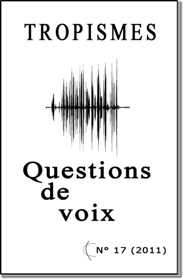La voix du poète entre rhétorique et esthétique
Keywords:
Blake, William, Wordsworth, Voice, LyricismAbstract
At the dawn of European revolutions, poetical writing deconstructs lyricism in an endeavour to recreate a voicing of the word which could mediate between intimate song and communal discourse. Through the prophet-orator mask of Blake, through the pseudo-political mask of Wordsworth, such a voice, though congruent with the voice of rhetorical actio, slips the poet’s control. In the dialogue between Songs of Innocence and Songs of Experience, via the covert extension of its material energy to the illuminated text, the voice is estheticized. Conversely, with Lyrical Ballads, the dramatized speaker’s fallacious eloquence makes it hyperrhetorical. In early Romantic lyricism, the Enlightenment’s confrontation of the mythical origins of language with speech as fiction eventually debars the poetic voice, whose essence threatens to be erased in a musical foreclosure of ever purified metre.
Published
Issue
Section
License
- Work submitted for publication must be original, previously unpublished, and not under consideration for publication elsewhere. If previously published figures, tables, or parts of text are to be included, the copyright-holder's permission must have been obtained prior to submission.

